Annalena McAfee appeared on The Bat Segundo Show #453. Ms. McAfee is most recently the author of The Spoiler.
Listen: Play in new window | Download
[PROGRAM NOTE: In the first few minutes of the conversation, one of the microphones decided to blow out. And while Our Correspondent was equipped with two microphones, the microphone that blew out wasn’t the one on Our Correspondent’s voice, but the one that was on the author’s voice. Ms. McAffee’s words can be detected during this program, but if her voice sounds like it’s coming out of a small radiator, well, you now know why. Many apologies for the low quality to Ms. McAfee and to our listeners. We have done our best in post-production to preserve this conversation despite this setback.]
Condition of Mr. Segundo: Selling his scandalous tales to the highest bidder.
Author: Annalena McAfee
Subjects Discussed: The journalism novel’s long tradition, Evelyn Waugh’s Scoop, P.G. Wodehouse’s Psmith, Journalist, Guy de Maupassant, the number of women working as journalists, Michael Frayn’s Towards the End of the Morning, the lack of women journalists in Tom Rachman’s The Imperfectionists, Nellie Bly, Hedda Hopper, Louella Parsons, using phrases as “nasal plainchant,” how style and language allows one to escape tropes, plucky newsboys, formality, balancing characters, botching an interview, Tamara Sim’s entitlement, finding redeeming value in characters who don’t comprehend basic journalism, how to counter your own biases when writing fiction, providing what the newspapers want, narcissistic protagonists, 1997 as a cusp moment in journalism, journalistic ethics, the desperate scramble to be first with a story, cash for stories, single-source Fleet Street exposés, prostitutes and TV presenters, Tory MPs and tabloid scandals, the impulse to tear people down as a journalist, including a virtuous side character, the Conservative Monday Club vs. a fictitious Monday Club, Sherman Duffy’s idea of a journalist being “somewhere between a whore and a bartender,” the differences between US and UK journalism, whether or not cultural journalism is a slightly higher form of tabloid journalism, David Simon’s Q&A comments being needlessly dissected by short-sighted journalists, the problems with celebrity journalism, Ian McEwan as in-house editor, Amsterdam, Enduring Love, being grilled on television through personal connection, Marguerite Higgins, women war journalists, the infamous hostile showdown between Gloria Emerson and John Lennon, how Higgins inspired two novels, what journalism has lost because of the Internet, needless length caps applied to present-day journalism, Kindle Singles, the influence of Maxim in the early noughts, aggregate sites, The Browser, Twitter and the move to individual curators, obsession, and internal pressure for journalists.
EXCERPT FROM SHOW:
McAfee: In terms of tearing people down, I did not work in that world really. I worked on The Financial Times. It’s a fantastic paper and the probity is unimpeachable. I worked on The Guardian on the culture. I founded and edited The Guardian Review. Again, that’s a paper that’s on the side of angels. I was very, very lucky. I had a spell on the Evening Standard. But I was arts editor and theater critic. And I suppose in my capacity as theater critic, sometimes I might have been less than kind. But it certainly wasn’t the kind of sustained bullying. Or I didn’t have that opportunity. And I hope that if I did, I would be able to resist it.
Correspondent: So you were really perhaps comparable to the Monitor‘s books editor the morning after the party.
McAfee: Yes.
Correspondent: Where everybody else was completely trashed and their heads were throbbing and they were incapable of any conversation. And meanwhile, those who chose not to imbibe in this debauchery, they were able to seize the reins here, so to speak. (laughs)
McAfee: Well, books editor do debauchery too.
Correspondent: Of course. Most people do. We all know this.
McAfee: There’s no character assassinations or kiss-and-tells on my particular beat, thankfully.
Correspondent: Sure. I wanted to go back to the question of character balance. Because you have this confident young woman named Tania. She’s dutifully reading books. She’s researching her subjects.
McAfee: She’s called Tamara. But the old woman gets her name wrong and calls her Tania sometimes.
Correspondent: I’m sorry. I’m talking about — anyway, she even is very nice to respond to the quip.
McAfee: Oh, Tania.
Correspondent: Tania. That’s who I’m saying. Tania.
McAfee: You know my book better than I do.
Correspondent: I know that Honor, in a joke, actually calls her Tania. And that’s the clue that there is actually something askew because she completely insists on Tania. You have that email joke. Okay. Now that we’re on the same page, so you’ve got Tania.
McAfee: Yeah.
Correspondent: She’s this erudite person who’s incredibly capable and she’s even kind enough to offer this tinselly chime that you describe when Tamara says, “Oh, well, the future is unisex jumpsuits and time travel.” But this does not exactly help us in warming to Tamara. I was reading this book and I’m saying to myself, “You know, Tania, this woman’s got her stuff together.” But I’m wondering how you worked out your method of parceling out Tania’s appearances throughout the book. Because they tend to be somewhat sparse near the beginning. And I almost got the sense that, as you were working on this, you wanted to have not so much of Tania. Because then all of a sudden, we’ll really not like Tamara. I’m wondering how you balanced the Ts here.
McAfee: Well, I did kind of concede Tania as the future. The only capable young woman journalist. Brilliant and completely ahead of the game as far as technology. And, of course, as I say, that was a time — 1997 — it was still possible to believe that the Internet was a passing fad. And indeed some of our great commentators said so. “It will be over soon. It’s like Citizens Band radio. It’s like Esperanto. It’s a craze. It will pass.” I use a quote from one of our great commentators saying exactly that in January 1997. So that’s what Tamara and all her colleagues are thinking. But gradually I hope that as a young woman who runs a website, as the future makes itself plain, as we see what direction it’s going in, that was the aim. That ultimately the future belongs to Tania and she claims it.
Correspondent: But did you worry that she might, in fact, be too virtuous? I mean, you’ve got two characters who have issues with Tamara and Honor. You’ve got Tania, who has not a single bad bone as far as I know. So how do you deal with this balance? Because if you have too much of Tania, then it gets away from the two central characters here. And so I’m wondering if there was more of Tania in an earlier draft perhaps or you had to say to yourself, “Well, I have to wait twenty or thirty pages before she appears again.”
McAfee: Well, no, there wasn’t more of Tania. And actually, again, I’m trying for complexity. And to be perfectly honest, I find Tania’s virtuousness and her capabilities slightly irritating. She’s the person who does one’s own job better than one can ever do and is always the last to leave the office. And she doesn’t laugh much. Her tinselly chimes are part of a game rather than a sense of humor.
Correspondent: No, it’s more of a polite gesture, I thought. I mean, here, she has been just totally insulted and instead of actually allowing herself to be steamrolled, she decides to respond with some grace. The tinselly chimes.
McAfee: Grace? Well, the tear of the victor.
Correspondent: Here’s the other thing about Tania. I mean, I know people like this. They go ahead and they work very hard, but they have a dark side. So I was reading this book thinking, “You know, Tania’s probably doing something we don’t know.” But we never actually get there. So I’m wondering: why? (laughs)
McAfee: Well, that’s true. That is probably true. And, in fact, she does move in on people.
Correspondent: That’s true.
McAfee: She’s incredibly attractive. That’s another of her irritating virtues.
Correspondent: (laughs)
McAfee: But she uses it and is jockeying for position and is not afraid to use her sexuality.
Correspondent: Nevertheless, you find her irritating.
McAfee: Well…
Correspondent: The successful woman is irritating. Wait a minute here. (laughs)
McAfee: She doesn’t have warmth, I suppose. And that’s really it. She’s hard to read and she doesn’t seem generous to her colleagues.
Correspondent: I see.
McAfee: She lacks generosity.
Correspondent: She moves in on the territory and she does so without really seeing what the pecking order is.
McAFee: As I say, she’s got the ambition of a young person.
Correspondent: That’s an annoying quality. I’ll give you that. So it’s interesting that you have the Monday Club in this book. Because it’s far more liberal than the conservative Monday Club. Because you have the Twisk Foundation fighting child exploitation wherever it is to be found. You have the war correspondent. And I’m saying to myself, “You know, this is almost a Bizarro World Monday Club.” And so I’m wondering why you decided to go for a more progressive form of something that is a conservative institution in the UK.
McAFee: Well, they meet on a Monday. But I chose…
Correspondent: It could have been the Tuesday Club. (laughs)
McAfee: But I quite liked it. And I think I do say an ironic reference to the conservative, right-wing thinktank of the same name. Or whatever. So I quite liked playing with that. I mean, these are bien-pensant liberals and they’ve taken the name of the arch factory of Thatcherism.
Correspondent: Do you have any personal experience with the real Monday Club at all?
McAfee: No.
Correspondent: Any efforts to peek in there?
McAfee: No. Not at all. I can’t think of any.
Correspondent: So Sherman Duffy — he was a reporter friend of Ben Hecht’s — and he has this very famous maxim. He said, “Socially a journalist fits somewhere between a whore and a bartender.” Wonderful, wonderful line. Now in the Monday Club chapter, you not only have Tamara serving canapes to these affluent types. But you also have Ruth, Honor’s publisher — she’s actually engaged in this service sector activity as well. She’s unpacking the pastries on the plate and so forth. So I’m wondering if you were thinking of the Duffy maxim when you were considering this. This is a natural extension. Is there any way that fiction can help us and assist us in rehabilitating a journalist’s social status from somewhere between the whore and the bartender?
McAfee: Well, I mean, journalists are happy to see themselves as mavericks. Aren’t they? Certainly British journalists. I know that American journalism is a more honorable tradition.
Correspondent: Really? (laughs)
McAfee: I was talking to a friend about this the other night. And she said that there’s more of a public service attitude. And it can make for more solemn journalism. But in the UK, it’s well, you know, anything can go.
Correspondent: So you would say that journalism in the UK has declined considerably in the last ten years.
McAFee: Oh no.
Correspondent: Or twenty years.
McAfee: I wouldn’t. I wouldn’t. I mean, I think there’s marvelous stuff going on. Absolutely marvelous. In fact, all that’s changed is the medium really. My war correspondent is not — she’s a bit of a dragon. And she resents the fact that the world has turned and she is not the top of the pile anymore. In fact, if she’d looked around, she would have much to celebrate. Particularly women in journalism. Women like Marie Colvin, the late Marie Colvin. In Russia, Anna Politkovskaya, as she died in the cause of her work. There’s marvelous reporting going on. But there’s also a lot of dross. That’s all mainstream. I don’t get celebrity journalism. I just can’t understand the appeal.
Correspondent: But some would argue that cultural journalism is, I suppose, a classier version of celebrity journalism. What do you think?
McAfee: Yeah.
Correspondent: I ask myself this question too. I mean, look, I’ve read the book and I’m trying to tie it into a culture here. And I don’t want it to be about gossip. But at the same time, is this conversation also part of the problem? Even though it’s slightly higher on the brow? (laughs)
McAfee: Somebody said that novels were higher gossip.
Correspondent: (laughs) Yes.
McAfee: That’s the level of celebrity journalism that appeals to me. But yeah, TV stars. Reality TV shows. I mean, I don’t want to go on to that. But that seems to be cheap television and cheap journalism. And I don’t think there’s anything edifying that one gets from it.
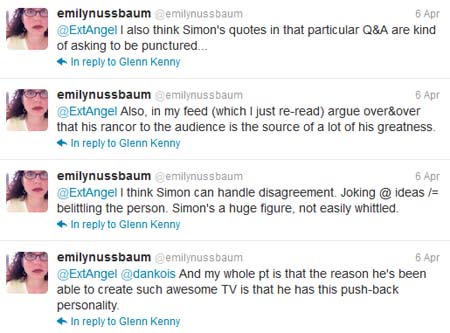 Correspondent: Well, the problem we have here too — and this is really frustrating. David Simon, for example, recently said some things in an interview. He didn’t quite express himself very well. But he basically implied that people who didn’t watch The Wire from beginning to middle to end were not watching it according to his vision. And I can totally understand his sentiment. But from my standpoint, I was saying, “Well, this is really nothing to get all that worked up about.” But, of course, television journalists completely flipped out over this and said, “David Simon is being an ass.” And Simon then has to spend an hour of his life talking to this TV critic named Sepinwall, basically clarifying what he was saying, where he was coming from. And this, to my mind, is the epitome. This says nothing about The Wire. It says absolutely nothing about the actual relationship to art. And there were several people — including a New Yorker TV critic on Twitter — who were going off about this. And I was saying to myself, “You know, why are you devoting so much of your energy to try and systematically dismantle and deconstruct a quote that really has no bearing on what David Simon is doing as an artist?” The suggestion I’m making here — and I’m going off on a total tangent and we will get back to your book — is that, well, do you think that cultural journalism might be suffering from the same problems that reality TV, this sensationalistic journalism, is?
Correspondent: Well, the problem we have here too — and this is really frustrating. David Simon, for example, recently said some things in an interview. He didn’t quite express himself very well. But he basically implied that people who didn’t watch The Wire from beginning to middle to end were not watching it according to his vision. And I can totally understand his sentiment. But from my standpoint, I was saying, “Well, this is really nothing to get all that worked up about.” But, of course, television journalists completely flipped out over this and said, “David Simon is being an ass.” And Simon then has to spend an hour of his life talking to this TV critic named Sepinwall, basically clarifying what he was saying, where he was coming from. And this, to my mind, is the epitome. This says nothing about The Wire. It says absolutely nothing about the actual relationship to art. And there were several people — including a New Yorker TV critic on Twitter — who were going off about this. And I was saying to myself, “You know, why are you devoting so much of your energy to try and systematically dismantle and deconstruct a quote that really has no bearing on what David Simon is doing as an artist?” The suggestion I’m making here — and I’m going off on a total tangent and we will get back to your book — is that, well, do you think that cultural journalism might be suffering from the same problems that reality TV, this sensationalistic journalism, is?
McAfee: Oh yes. I do. I find that a lot of interviews — and I know we’re having an interview.
Correspondent: Yeah, I know. It’s very meta here. (laughs)
McAfee: They concentrate on rehashing old stuff. Rehashing cuttings basically. Inquiring, as Tamara does, about affairs, about the personal life and not about the work. And when I was on the Guardian, we started a profile which was an essential interview about a writer or an artist. And the one rule was it was about the work. We don’t care about the personal life. If anyone cares about the personal life, they can read it. They can look it up. They can read it elsewhere. But what’s really interesting is the work. And I find that so much more enriching.
Correspondent: There is one question I have about your husband [Ian McEwan] and you, and it has nothing to do really with the personal. Although it may have something to do with the personal. But we’re talking about purely artistic terms. Okay. One, you’ve got an in-house editor. I’m really curious about how you two work as in-house editors. And, two, I noticed that this book had quite a bit in common with Amsterdam. You have a photo that is released. You have editors who are sacked. And so I wondered first of all if Amsterdam was hovering over you as you were writing this and, second, how do you guys edit each other’s work? That’s all I care about.
McAfee: Well…
Correspondent: Or do you? Or do you leave each other alone?
McAfee: Yes. We do read. I read his work. I’m his first reader with a pencil. And he returned the compliment. In terms of Amsterdam, which I love — it’s a great newspaper novel actually, though it’s guys again. I hadn’t reread it for a while. But I guess any newspaper novel about modern journalism is going to have this scandal element to it. And, in fact, what you ask me is a fairer question, less compromising. When I was on the FT, I was editing the arts and books page. I was invited to the BBC. And it was around the time of the Booker Prize, when the Booker Prize was just going to be announced. The shortlist was going to be announced. And I was asked to come on as a literary editor of the Financial Times. So I turned up. And I’m very nervous on television. And I’m in absolute agony. And I turn up in this bright lit studio. And the guy turns to me and says, “So did you help hubby write the book?” Oh, what do you say? I said, “He’s perfectly capable of writing it himself. Thanks very much. But, nope, he wrote Amsterdam by himself. Unassisted.” As I wrote The Spoiler.
Correspondent: I would have said, “Did your wife help you with that question?”
McAfee: You know, that’s good.
Correspondent: So you guys edit each other’s work. Is there a point where you say, “Hey, hands off, Ian, I’ve got this”? I mean, does he become too vigorous with the pen? Or do you become in turn too vigorous with the pen? How do you keep each other’s hands off? What’s the deal with you guys?
McAfee: Well, it’s very companionable and decent. We both make suggestions and we both know that we’re at liberty to ignore them. Which is what happens. But when I read his first — the first book when we were together was Enduring Love. And I read that. And he asked me. “Be as free as you like and put pencil marks wherever there’s any kind of doubt.” And I was very tentative about it. I mean, I was used to editing for a living. But I was very tentative about hurting things. And I’ve written children’s books.
Correspondent: Yes, I know.
McAfee: I had a children’s book that was just coming out. And so he said, “Oh, I’d like to see that.” And he went through it. And there were pencil marks and suggestions.
Correspondent: (laughs)
McAfee: I thought, “Right. That’s how it’s done. No holds barred.” I went back to Enduring Love and pulled no punches.
Correspondent: (laughs) Wow. Did you pull no punches on the opening scene? I’m curious. No one can…
McAfee: There was no work required. Absolutely. It’s superb.
(Photo: Richard Saker)
The Bat Segundo Show #453: Annalena McAfee (Download MP3)
This text will be replaced
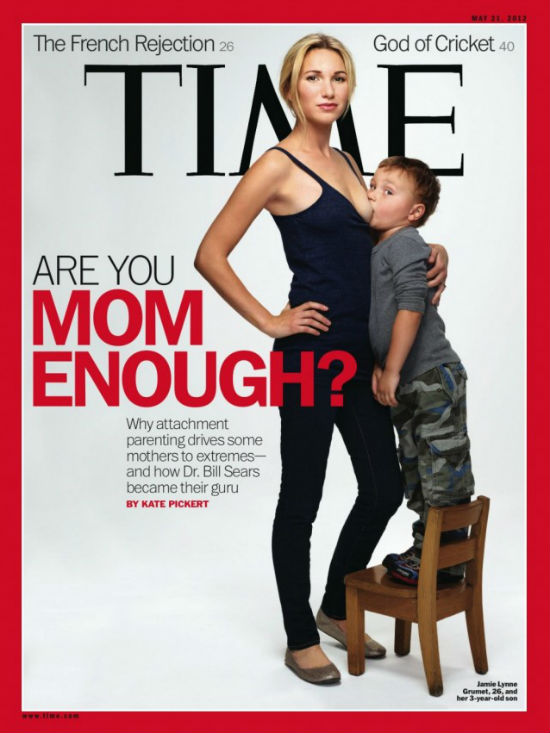 Williams: We all have these substances coursing through our bodies. Unfortunately, some of them really collect in fatty tissue in the breast. And then the breast is really masterful at converting these substances into food. So it ends up in our breast milk. But I would point out that I did continue breastfeeding. I was convinced that the benefits still outweighed the risks. And, of course, formula is not a completely pure product either. It’s also contaminated with heavy metals and pesticides and whatever else is in the water that you’re mixing it with. And then, you know, of course there are sometimes these scares that come out of China where you find melamine and other weird additives in the formula. So unfortunately, I feel that we’ve taken this miraculous evolutionary substance and we’ve degraded it to the point where you can really now almost compare to formula.
Williams: We all have these substances coursing through our bodies. Unfortunately, some of them really collect in fatty tissue in the breast. And then the breast is really masterful at converting these substances into food. So it ends up in our breast milk. But I would point out that I did continue breastfeeding. I was convinced that the benefits still outweighed the risks. And, of course, formula is not a completely pure product either. It’s also contaminated with heavy metals and pesticides and whatever else is in the water that you’re mixing it with. And then, you know, of course there are sometimes these scares that come out of China where you find melamine and other weird additives in the formula. So unfortunately, I feel that we’ve taken this miraculous evolutionary substance and we’ve degraded it to the point where you can really now almost compare to formula.
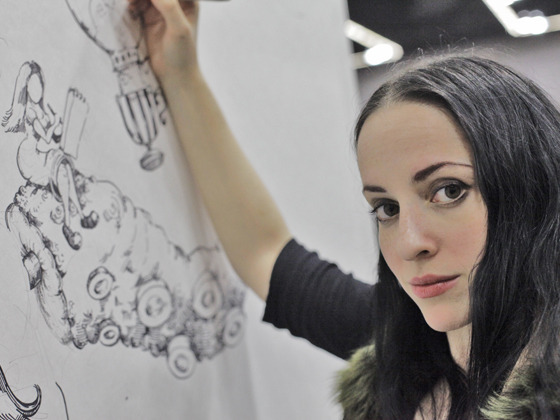
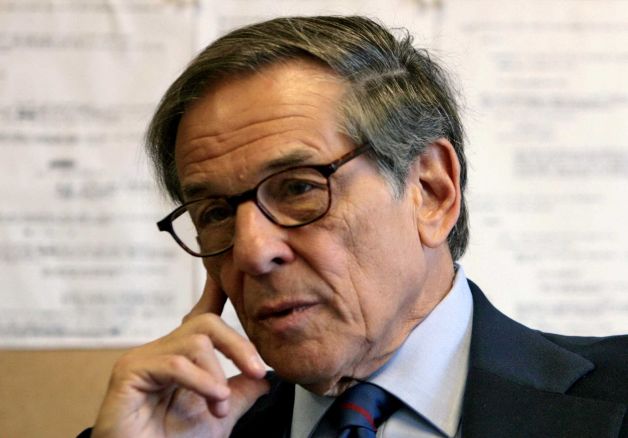
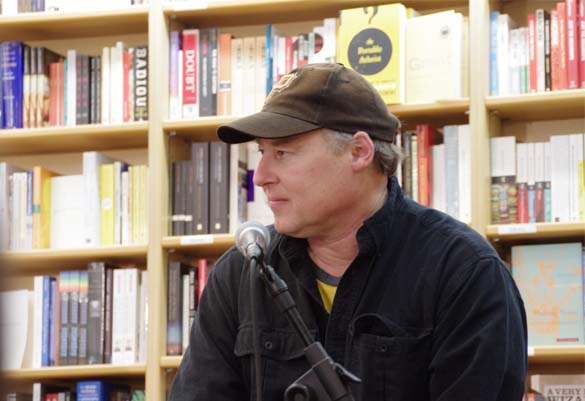
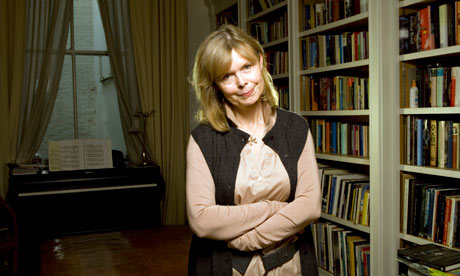
 Correspondent: Well, the problem we have here too — and this is really frustrating. David Simon, for example, recently
Correspondent: Well, the problem we have here too — and this is really frustrating. David Simon, for example, recently